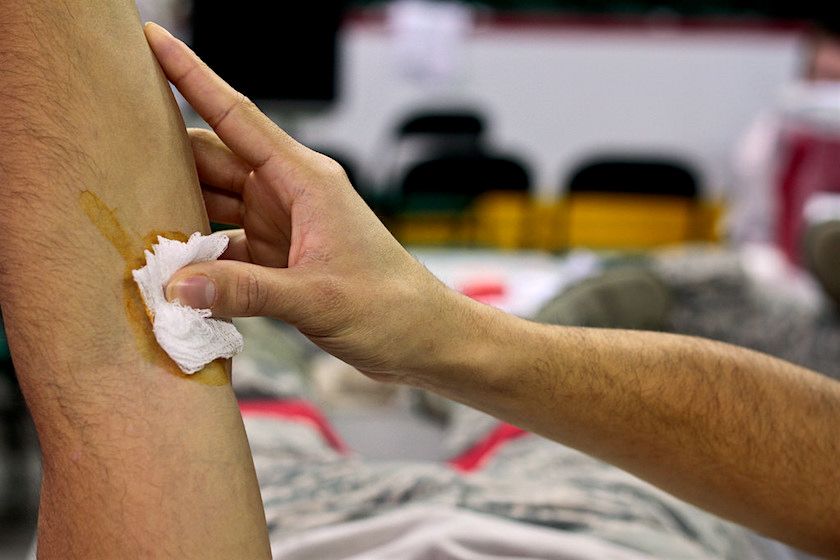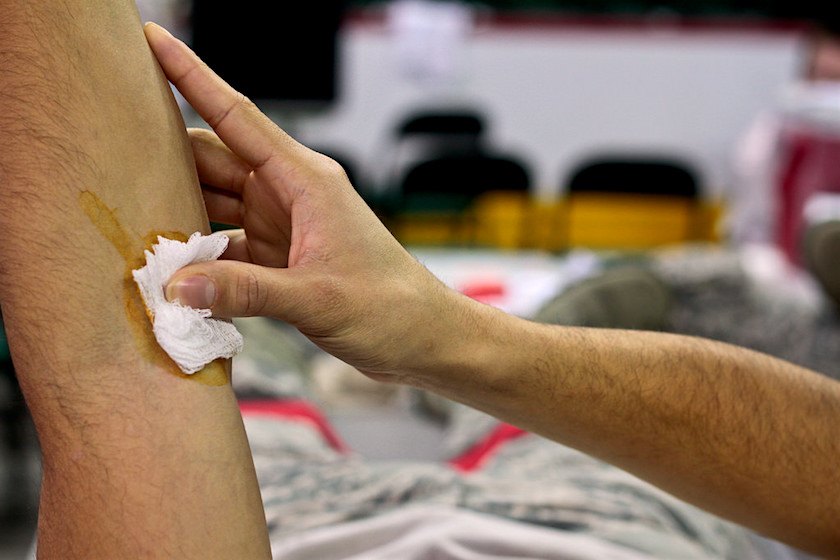
Iraq’s Arab and Kurdish populations have a long history of trouble.
Heavy fighting in the 1970s and 80s left a deep rift between the two group, as Arabs called Kurds “insurgents” and “terrorists,” while Kurds called Arabs “occupiers” and “oppressors.”
Recently in Kurdistan, a group of displaced Arabs gathered to call Kurds something different:
Friend.
In the late 80s, Saddam Hussein’s regime carried out its genocidal al-Anfal Campaign against the Kurdish people of Iraq. Some estimates put the casualty count as high as 100,000, though none know exactly how many were killed.
Things became less violent in the 90s when a no-fly zone was established over the Kurdish region, providing the basis for a more independent Kurdistan. But after years of fighting, the tension was still there.
Today, Arabs are pouring into the semi-autonomous Kurdistan region once more—but this time, not to fight.
They are seeking shelter from the violence ravaging other parts of Iraq. Each time ISIS advances and battles are fought, families flee in the tens of thousands. Displaced Arabs who are allowed into Kurdistan are often viewed with suspicion.
The Erbil-based Rudaw News reports that “by May, 2015, the total number of Anbar refugees in the Kurdistan region had exceeded 1.7 million, after the ISIS takeover of Ramadi earlier in the same month.”

Rudaw also reported that the Peshmerga, a collection of politically-aligned Kurdish militias, have suffered heavy losses in the fight against ISIS: nearly 1,300 killed and 7,500 wounded. This led the Kurdish Government to call for blood donations from its citizens to help support the fighters. After hearing this, a group of Arabs from Fallujah and Ramadi, now taking shelter in the region, decided to donate, too.
The man organizing the campaign, Mohammed Malawi, told Rudaw: “Today, we want to donate our blood for the brave Peshmerga, as they protect us from ISIS.” He stressed that ISIS “is the enemy of us both,” referring to Iraq’s Kurds and Arabs.
If Kurds and Arabs, Palestinians and Israelis, or any other at-odds group is ever going to reconcile, it must start with simple acts of kindness like this one. It doesn’t have to be dramatic. It doesn’t have to go viral. Caring for perceived enemies is always a radical act, no matter how much or little attention it gets.
The key is to start, to do something, and then to plug up your ears when people come at you or tell you to quit.
Many Kurds are touched by Malawi and his community’s efforts, though some have commented with disgust at the thought of “Arab blood in our brave Peshmerga.”
But Malawi won’t be deterred. “Donating blood for the Peshmerga is the least we can offer to them,” he said.
What can you offer your adversary? How can you reach across enemy lines not with a fist, but with a helping hand?
Creative Commons photo by Matthew Allen Hecht.


